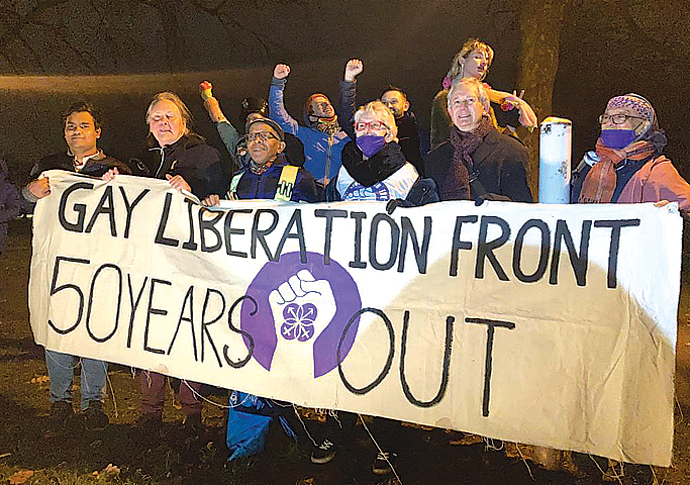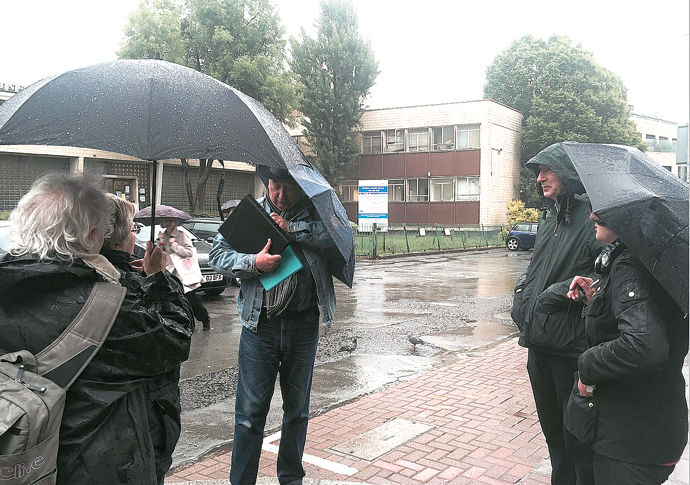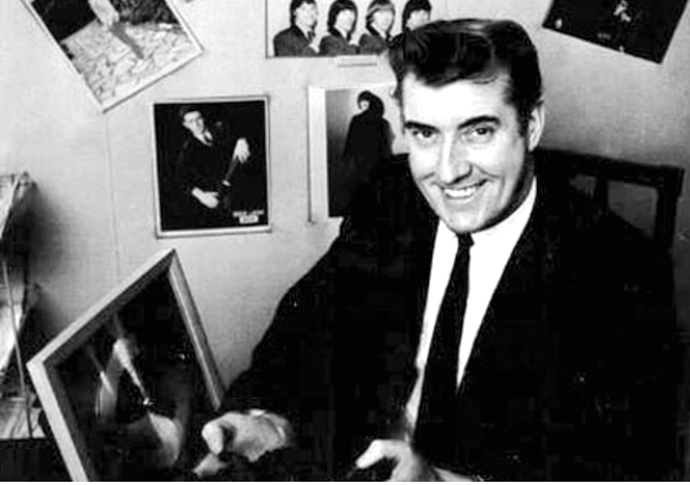LGBT+: Sex is part of LGBT history
Gay Holloway walking tour explores X-rated stories
Friday, 3rd February 2023 — By Izzy Rowley

Campaigners in Highbury Fields in 2020, marking the 50th anniversary of the first Gay Liberation Front rally
SEX, murder, and rock’n’roll are on the agenda of a Gay Holloway walking tour set up for LGBT History Month.
Jiff Bayliss, 70, will be the guide for the X-rated stories, telling the Tribune: “You can’t do an LGBT walking tour without talking about sex, and I don’t want to offend people, so if you’re going to be offended don’t come on the tour.”
He added: “Sex is an important part of LGBT history – it defines it in many ways because sex for LGBT people was illegal for so long.”
The tour takes walkers to the site of Play Pit, a sex club famous for its cruising scene on the Caledonian Road that remained open until 2012.
“Time Out called it ‘a north London sleaze pit where no fantasy is too wild,’ and they advertised themselves as ‘absolutely no holes barred bonking’,” said Mr Bayliss, who has been a qualified Islington Guided Walking Tour guide for 11 years.
“The club didn’t sell alcohol, so the guy next door who ran the off-licence had all of these people dressed to go to a sex club coming into his shop all night. I’m going to take people to the site of a London Fetish fair that was held every second Sunday of the month. It sold fetish equipment and accessories, and it hosted over 500 shoppers on a regular basis.”

Jiff Bayliss on one of his walking tours
Meanwhile, a public toilet beside Holloway Station is revealed to be an essential part of gay history – it’s an old cottaging hot-spot.
“Joe Orton, a playwright who was gay and lived with his partner when it was illegal, kept a diary,” said Mr Bayliss.
“In some of the diary, it talks about his experiences in Holloway Road which is pretty explicit.”
According to the diary, “no more than two feet away the citizens of Holloway moved about their ordinary business” while he met lovers in the toilets.
“Orton and his partner defaced some library books and were sent to prison for six months for it,” said Mr Bayliss.
“When he was in prison he wrote a lot and he became very famous. Allegedly, he was going to leave his lover, Kenneth Halliwell, who killed him and then took his own life.”
The tour also tells the story of Joe Meek, whose violent end has been subject to scrutiny in recent years.
“Meek hired three floors above a shop, it’s actually 304 Holloway Road, and created a studio in his bathroom and kitchen,” said Mr Bayliss.

Joe Meek
“He recorded three number one tracks all on Holloway Road, including a song called Telstar by the Tornadoes, which was number one in Britain and the USA.
“Meek fell in love with the lead guitarist from The Tornadoes, Heinz Burt, who wasn’t gay, so the love wasn’t requited. Heinz grew up in Islington, which at the time was full of gangsters, and he got a gun to try and protect himself from them, and Joe took the gun from Heinz,” said Mr Bayliss.
“Unfortunately, all of Meek’s ideas were being nicked by big record companies, so he was broke, an alcoholic, and one day his landlady asked him to keep the noise down in his flat and he killed her with that gun he took from Heinz and then shot himself.”
The tour also deals with Islington’s political contributions to gay history.
“The first stop is in Highbury Fields, where the first gay rights rally in Britain was held by the Gay Liberation Front,” said Mr Bayliss.
“It was organised in August of 1971 by Louis Eaks who was a member of the Young Liberals. He was accused of cruising, which was illegal then because it wasn’t done in private. Eaks said all he’d done was ask some bystanders for a light.”
The tour begins outside Highbury and Islington tube station on February 18.